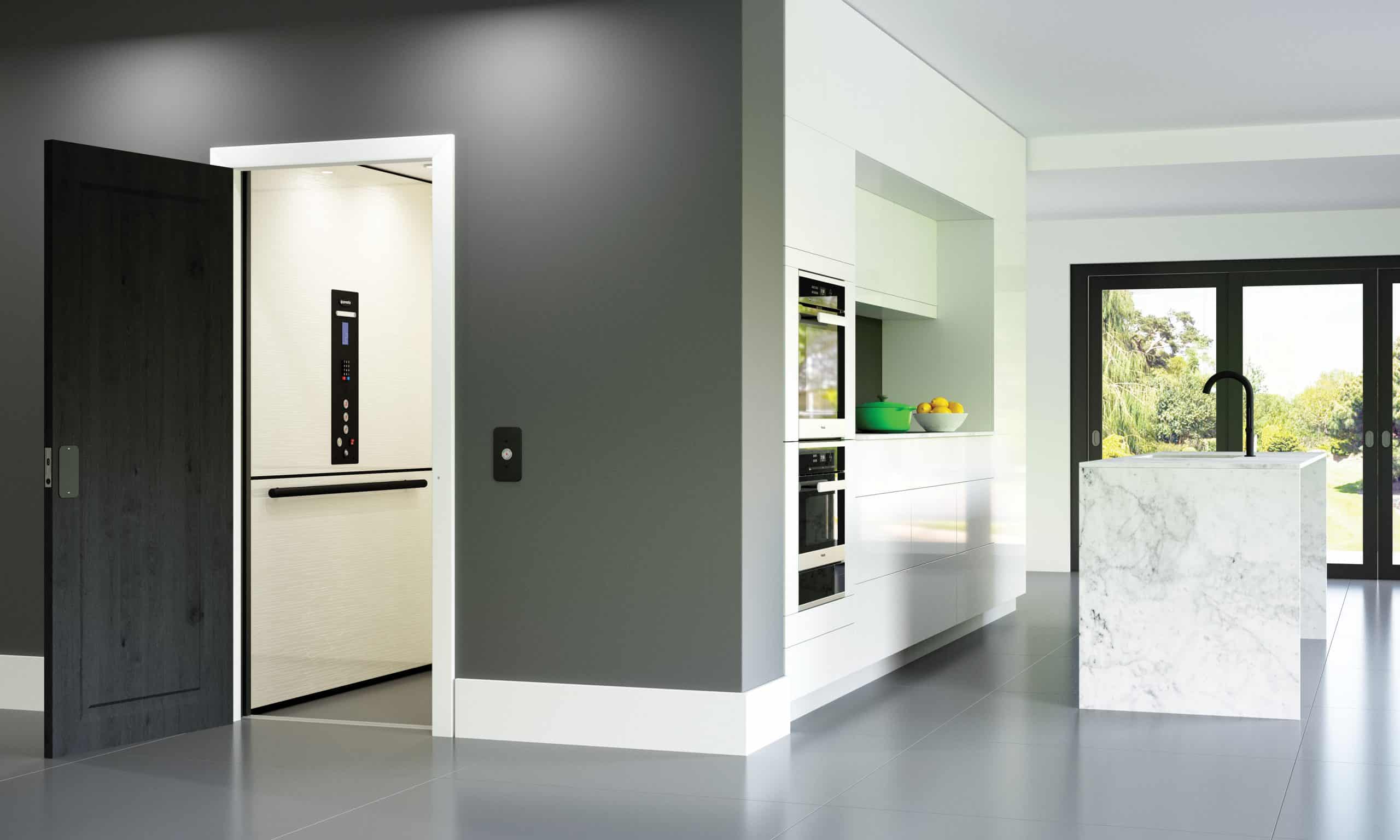© Copyright Port City Elevator, Inc.

This depends on your specific needs, the home it is going into and what you expect from your elevator. The In-Line Gear is more suited for Coastal regions due to the fact sand and salt do not affect the component parts like a hydraulic elevator. It is best to sit down with an elevator specialist and determine your specific requirements before choosing an elevator.
No, in-line gear drives are quiet and also offer smooth gradual starting and stopping.
For an elevator that will accommodate a wheelchair, 3′ x 4′ car, takes about a 5′ x 5′ area and enough room for a machine room if the elevator that has been chosen requires one. Some jurisdictions require machine room, some do not.
Up to 5 floors can be served. 50′ of travel is the maximum for a residential elevator.
There are elevators that can and some that cannot. Most generally you would like the inside clear car to be 36″ x 48″ to accommodate a wheelchair.
Yes. To The Top Home Elevators provides the services of an architect, contractor and years of elevator experience and can help you find the best location for an elevator with the least amount of cost and impact to your current home design.
Residential elevators typically have a capacity of 950 lbs.
Yes, multiple entrances allow for entering and exiting the elevator through separate doors on different landings. You may have two opposing entrances; enter and exit at the front and side for two 90 degree openings; or you can enter/exit on a single side as in a traditional elevator.
In a power failure, a battery-operated safety feature makes sure passengers are never stranded between floors. Emergency lighting comes on and the controlled safety descent feature will take the car to the nearest lower floor or another pre-selected floor (some models).
We follow the manufacturer’s recommended planned maintenance schedule which calls for two planned maintenance visits per year.
By framing in stacked closets on top of each other for storage until you are ready to add your elevator. Then you could just remove the floors when you are ready to have your elevator installed.
No, interlocks are installed at each landing which will only allow the door to open when the elevator is at that landing.
It generally takes 6-8 weeks to manufacture and have the elevator shipped to our facility. From the day the installation starts.
LULA stands for Limited Use/Limited Application commercial elevators. LULAs, as compared to commercial passenger elevators, are more compact, less costly and have lower capacity. Our LULAs are all hydraulic drive, whereas residential elevators also come with mechanical drives such as winding drum and in-line gear drives. LULAs are an excellent option for commercial installations of certain size and, oftentimes, can fit more easily into existing construction, as compared to traditional passenger elevators.
1400 lbs
No, hydraulic cylinders are located above ground, siting on the pit floor between the rails.
Most are installed within two week’s time.
Yes. There are outdoor models manufactured to protect it from various weather conditions.
This will vary by model. Most Stair lifts have a 300-350 pound capacity with some models offering a 600 pound weight capacity.
Stair lifts today are designed to fit almost any stairway from straight stairs, both short and long stairwells, and many different shapes of curved stairs.
Stair lifts are generally being installed in 36″ wide stairwells, although we have models and applications that can accommodate narrower stairways.
Straight stairlifts oftentimes can be installed with two days of purchase. Curve stairlifts require a custom rail to fit your home, taking on average 4-5 weeks from measurement to installation.
For outdoor low-rise applications, typically utilizing an unenclosed vertical wheelchair lift model and used in conjunction with porches and garage stairs, the maximum travel distance is 72″ (6 ft). Taller applications utilizing a vertical platform lift are typically enclosed and can travel up to 14′. Incline wheelchair platform lifts can travel up to 40′.
Weight capacity is limited by code with most vertical wheelchair lift models rated for 750 lbs. Incline weight capacity is limited by model with inclines typically capable of lifting 500 lbs with our highest load rated incline wheelchair lift being up to 750 lbs.
A shallow 3″ recess (1 1/2″ option available) is preferred as it allows level entry at the lower landing. If a pit recess is not feasible, a ramp may be possible, depending on the adjacent floorplan. A pit/recess is not recommended on outdoor applications.
Most applications require the lift to be inside a runway enclosure, either provided by the lift manufacturer in metal, Plexi-glass or glass panels, or provided by the general contractor built from stud/drywalls, concrete blocks or other suitable materials.
Between 50 – 500 lbs depending on the size of the car and whether a commercial or residential model. Most resideintial dumbwaiters have a 100-200 lbs capacity.
Approximately 50 ft.
Please review the safety notice about Waupaca elevators.